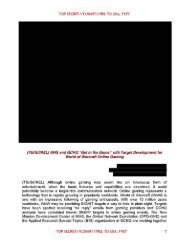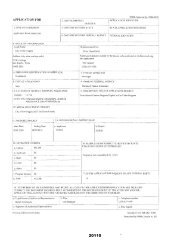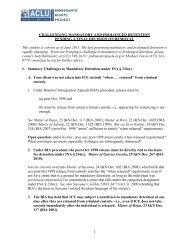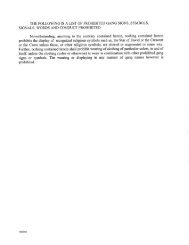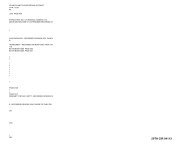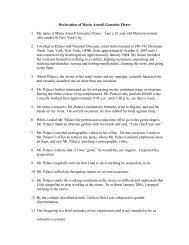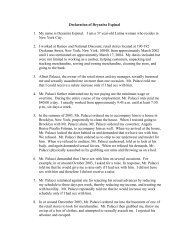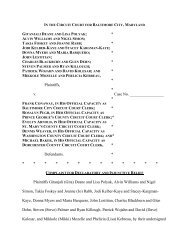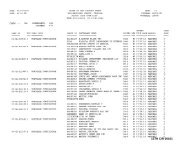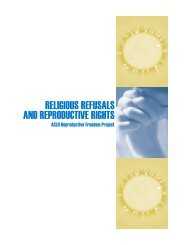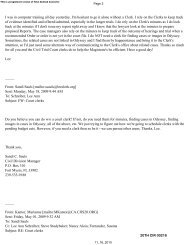NO. AP-75,363 IN THE COURT OF CRIMINAL APPEALS OF TEXAS ...
NO. AP-75,363 IN THE COURT OF CRIMINAL APPEALS OF TEXAS ...
NO. AP-75,363 IN THE COURT OF CRIMINAL APPEALS OF TEXAS ...
You also want an ePaper? Increase the reach of your titles
YUMPU automatically turns print PDFs into web optimized ePapers that Google loves.
STATEMENT CONCERN<strong>IN</strong>G ORAL ARGUMENT<br />
Pursuant to Texas Rule of Appellate Procedure 39.7, Appellant Max Soffar hereby<br />
requests oral argument. This is a capital case. Among the issues presented are:<br />
The trial court erred under TEX. R. EVID. 803 (24) in excluding statements against interest<br />
establishing that Paul Reid told an accomplice during a Houston armed robbery that he had<br />
previously shot four people in a bowling alley on Route 290 (Subpoint (a) of Appellant’s<br />
First Point of Error).<br />
The trial court violated Max Soffar’s federal and state constitutional rights to due process,<br />
compulsory process, and to present a defense by precluding evidence of Reid’s admission<br />
to shooting four people in a bowling alley on Route 290 (Subpoint (b) of Appellant’s First<br />
Point of Error).<br />
The trial court denied Max Soffar his constitutional right to present a defense by<br />
precluding evidence of Paul Reid’s distinctive modus operandi in his brutal Texas and<br />
Tennessee crimes, which marked him as the perpetrator of the similar Fairlanes<br />
robbery-murders (Appellant’s Third Point of Error).<br />
The trial court violated Max Soffar’s constitutional right to present a defense and basic<br />
evidentiary rules by precluding evidence showing that the Houston media broadcast details<br />
of the crime contained in Soffar’s putative confession which the prosecutor claimed only<br />
the perpetrator could have known (Appellant’s Fourth Point of Error).<br />
The trial court committed reversible error by denying Max Soffar’s Motion to Quash the<br />
Indictment on Account of the Violation of Equal Protection in the grand jury selection<br />
process (Subpoint (a) of Appellant’s Fifth Point of Error).<br />
The trial court committed reversible error by denying Max Soffar’s Motion to Quash the<br />
Indictment Based on the Violation of Due Process and the right to a Fair Cross Section in<br />
the grand jury Selection Process (Subpoint (b) of Appellant’s Fifth Point of Error).<br />
It is upon these issues that oral argument is particularly sought. Undersigned<br />
counsel are of the opinion that oral argument would serve to emphasize and clarify these<br />
issues.<br />
xxx



